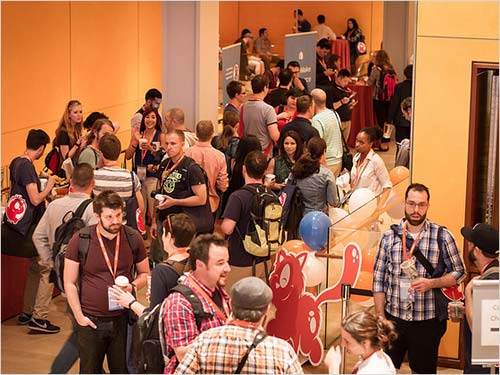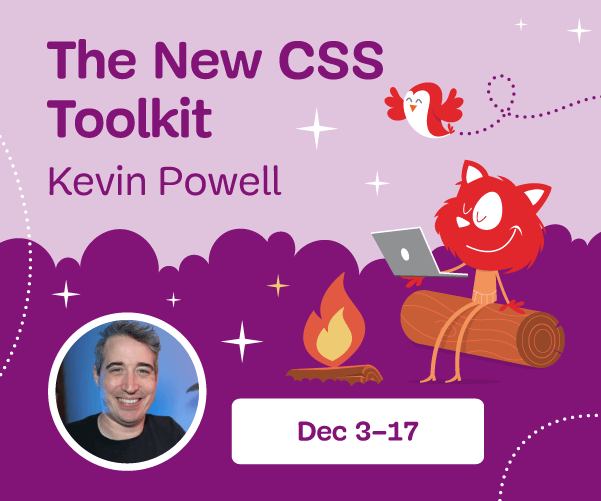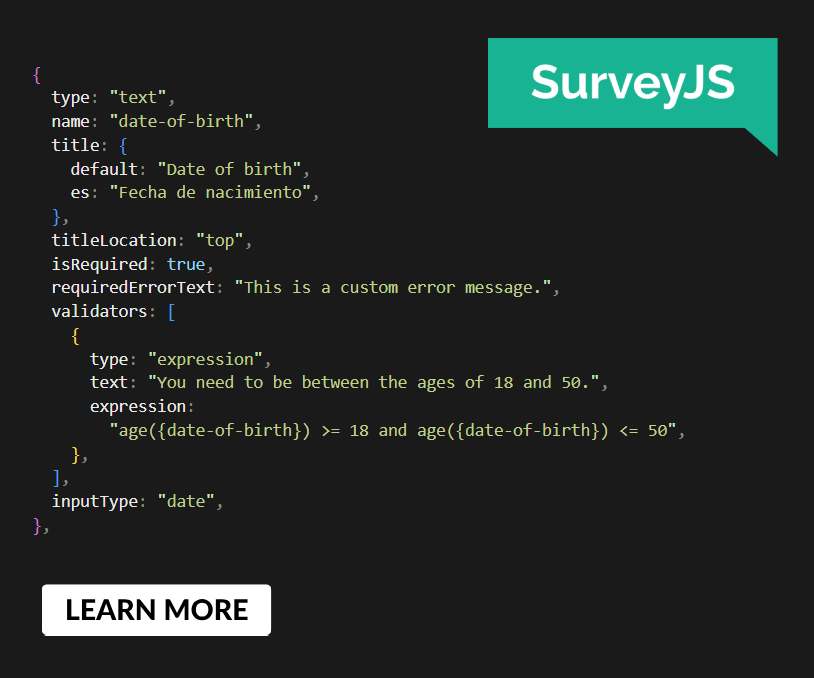Rekindling Your Passion For Web Design
I love being a web designer and I'm incredibly thankful that I decided to join this industry many years ago. Still, **despite my love of this profession**, there have been a number of times during my career when my passion has waned and I’ve found myself simply going through the motions instead of fully applying myself to my work. This scenario is likely familiar to many of my fellow web designers. It is called burnout.
Burnout is a very real challenge that we face as web professionals. The same processes that help us complete projects successfully can also contribute to us falling into a routine and hitting autopilot on our work. Sometimes, an overload of work can force you to fall into a routine and become a production line in order to meet deadlines. Other times, a lack of variety and excitement can lead to apathy with burnout not far behind.
Whenever I have started to experience burnout in my career, thankfully I have recognized the situation and been able to work to resolve the problem. In this article, I will share some of what I have found helpful in rekindling my passion for web design.
Talk To Your Peers
If anyone can understand your feelings of burnout, it is fellow web professionals. They have likely experienced something very similar and they may be able to give you advice on how to handle the situation. Sometimes, simply talking to others is the catalyst you need to break out of a funk and get excited about your work again.
Attending a web conference is one of the best ways to meet and interact with other web professionals. Listening to presentations from some of our industry’s best and brightest, and then being able to discuss that content with fellow attendees at lunch or at an after-conference party, always gets my creative energies flowing. I have never returned to the office after a conference and not been full of fresh ideas and excited to get back to work! Of course, conferences do not happen all the time, nor are they inexpensive to attend.

If you cannot go to a conference for one reason or another, then local meet-ups are another way you can connect with your peers. If there are no groups that meet currently in your area (you can check a site like meetup.com to find some events near you) then consider organizing a new group by reaching out to some other designers or agencies, choosing a time and place to meet, and starting a meet-up group yourself.
Take A Break
There’s a reason why companies give their employees vacation time – because time away from the office is an important part of maintaining a healthy work/life balance. This point is something I covered in a previous article I wrote here on Smashing Magazine about fostering healthy non-professional relationships. Still, while vacations are indeed important, sometimes one week away from work is not enough.
I remember speaking with a web designer I had collaborated with on a few projects about a sabbatical that he took a while back. He had felt himself burning out and decided that he wanted to take six months totally away from his job. Now, few of us can just walk away from our work for half a year, but he planned it out and made preparations so that he could make it happen. He looked hard at his budget and made some changes so he could save some money and give himself a cushion that would allow him to go without any income during his time off. He admitted to me that it was difficult, but workable, and he did take that time off after about a year of working and saving.
During his sabbatical, he surfed, he read books (not ones about web design), took a cooking class, and, above all, he stayed away from work. No checking emails or calling into the office. He truly took time away, and he said that it was wonderful – not only the time during this sabbatical, but also the moment when he returned to work. He was full of new ideas, refreshed and invigorated. He also reported to me that he had a new outlook on his work and on potential burnout. Having taken the steps to make his sabbatical happen, he now knew that should he ever hit that wall of burnout again, he could find a way to take some significant time off to get back on track.
If you are experiencing burnout, be sure to use your vacation time effectively. If that time is not enough, consider taking a more significant break. It may not be easy to manage, but with some proper planning, you can find a way to make it work.
Teach Others
About six years ago, I began teaching website design and front-end development at my state university. When I took the position, I thought that it would be a refreshing change of pace that would allow me to share my knowledge and experience in a whole new way. The reality of what I got out of the experience far exceeded my expectations going in.
For me, teaching helped me remember the energy I had when I first started in this industry. It’s easy to let the weight of project deadlines, client problems, and the day-to-day challenges of the job drown the sense of enthusiasm and excitement you had when you were working on websites in the early days of your career. I see that energy in my students and it is infectious. You can’t help but have it seep back into your work as well!

If you cannot find a position teaching at a school, you can still be a mentor to new web professionals. Consider adding an internship program at your company and allow those web designers just entering the industry to benefit from your years of experience, while you benefit from their enthusiasm for their newly chosen profession!
Take On A Passion Project
Few of us in the web industry truly get to choose the projects that we work on. If you work for an agency, you have to work on the projects that the agency closes and which are assigned to you. If you are an in-house resource, you work on the projects that your company needs completed. Even if you run your own company, you still have bills to pay and, sometimes, you take the projects that you have to – and it is not always the work that you’d like to be doing.
My first job in the web industry was working for a company that made websites for small real estate companies. That is all we did. Day in and day out, I worked on real estate sites. As you can imagine, it became pretty monotonous pretty quickly.
Around this same time, I began playing in a band with some long-time friends of mine. Since I knew how to build websites, I became the band’s “webmaster” by default. The work that I was able to do for the band’s site, a project that I was obviously personally invested in and passionate about, gave me an outlet for my creativity that my normal work didn’t provide me at that time. It kept me passionate and interested in my profession.
Do Some Good
While projects you have a personal attachment to can absolutely help rekindle your passion for web design, so can working on projects that help make a real, positive difference in people’s lives. Putting your skills to use in the service of a non-profit organization is a wonderful way to do this.
Think about the charitable organizations in your area that could use some web design assistance. While large, well-established (and well-funded) charities likely have marketing teams and budgets, smaller organizations, like animal shelters or church groups, probably do not. Those are groups where your work can really make a difference and where you can apply your passion for your profession to affect positive change in your community.
Embark On A New Challenge
A number of years ago, I was working for a company that produced touchscreen kiosk systems. I liked the people I worked with and the work that I was doing, but after close to six years on the job, I had to admit that I was not doing my best work. Projects had become routine and I was just returning to comfortable solutions that had worked for me in the past, instead of trying to innovate and grow. I needed a change, and I realized that the only way I could achieve that change was by leaving the company.
This was not an easy decision. As I said, I liked the job and had been there for some time, but it was the right decision. As I thought about it, I was indeed scared, but I was also excited. That excitement was something I had not felt in some time. It felt great and it made me realize I was on the right path.
In the end, I joined a new company that provided me with a wealth of new challenges, including the opportunity to grow and continue to challenge myself in the future. Making this type of change in your career may not be easy – it certainly wasn’t for me – but if you want to rekindle your passion for your work, this kind of drastic change may be exactly what you need.
Is Passion Necessary?
So far, we’ve spent this entire article looking at ways you can bring passion back into your web design work, but we should also ask the question: is passion actually necessary in your work?
The answer to this is an individual one. You need to decide for yourself whether or not passion is an important part of your career needs. For some people, passion simply isn’t that important. I think about my parents, two people who had long and successful careers as a health inspector and a medical transcriptionist. They both enjoyed their jobs and they worked hard, but they certainly weren’t passionate about what they did. They didn’t spend nights and weekends reading up on the latest developments in their field or honing their craft. They liked their jobs, but that is as far as it went, and that was fine for them. For myself, however, that is not what I want out of my career.

For me, passion is, indeed, important. If you feel the same, but have seen that passion slipping lately, hopefully the ideas presented in this article will help you rekindle your excitement for your work.
How Do Your Keep The Passion In Your Work?
How about you? Do find passion for your work an important part of your career? If so, what have you found to be helpful in keeping that passion for your job intact? Share your methods and ideas in the comments section below.
Further Reading
- Does The Future Of The Internet Have Room For Web Designers?
- Rekindling Your Passion For Web Design
- It’s Not All Doom And Gloom On The Web
- Getting The Most Out Of Your Web Conference Experience



 Agent Ready is the new Headless
Agent Ready is the new Headless
 SurveyJS: White-Label Survey Solution for Your JS App
SurveyJS: White-Label Survey Solution for Your JS App


